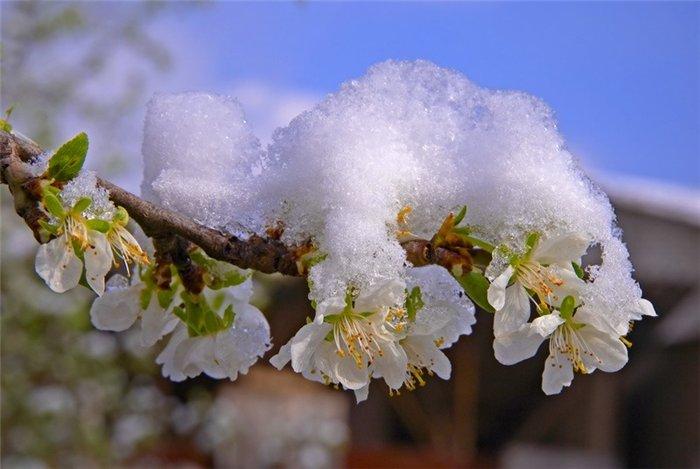It became much colder in Moldova at the end of March. This week, the air temperature will drop to +3-4° C on some days, and frosts are expected at night to -1-2° C. It rained with snow in several northern and central regions of the country, and there were squally winds. It will get warmer by the end of the week.
As agronomists at horticultural farms believe, the short last cold wave in March is most likely not to cause serious damage to flowering apricots, as well as orchards of early cherries and sour cherries entering the flowering period. At this stage of vegetation, stone fruits are quite capable of withstanding freezing to -4° C for two to three days without negative consequences, EastFruit experts report. Frosts of such intensity can cause much more damage to perennial plantations in the middle – second half of April, such cases are not uncommon in Moldova.
Nevertheless, experts recommend that fruit farmers that have anti-frost installations use them on frosty nights in March, especially on plantations in the lowlands. It is also possible that smoke can be useful and efficient in some orchards.
The last cold snap this March, with precipitation and wind (after a rather long period of abnormally warm and dry weather), will adversely affect the pollination of early stone fruits.
The use of the site materials is free if there is a direct and open for search engines hyperlink to a specific publication of the East-Fruit.com website.




